Website builders offer a practical solution for individuals, entrepreneurs, and small businesses looking to establish a website without employing a developer. However, beginners may face obstacles when selecting the most fitting website builder.
As a result of numerous website builders in the market, it is challenging to determine which one is most suitable for you. The optimal website builder for your specific situation depends on your distinct demands.
This article provides you an insight into the advantages and disadvantages of the most popular website builders, helping you assess and select the one that best fits your requirements.
What to Consider When Choosing the Best Website Builder?
Before comparing the top website builders, we advise that you identify the purpose of your website. Specify your objectives and the features you intend to incorporate, such as a blog section, photo gallery, eCommerce options, reservation system, contact form, SEO features, and social media capabilities, among others.
If you are uncertain about your preferences, seeking inspiration from your competitors or other websites can offer guidance.
Most website builders provide drag-and-drop interfaces to create your new website effortlessly. Trial accounts (free plans) or generous money-back guarantees can be utilized to explore the builder before making the final decision.
It’s crucial to consider your future growth plans. Will you be updating the website regularly? Do you need to include a blog section? Will you expand your eCommerce store by adding more products?
It is imperative to select a website builder capable of adapting to your increasing requirements as your business expands.
The standards utilized to evaluate the top website builders in our review
We have aided over 400,000+ users in initiating a website and tested virtually every website builder in the market over the last two decades. We evaluate several criteria while assessing the best website builder selections for each use-case, but the top five elements we consider are:
- Ease of Use – An intuitive, customizable drag-and-drop builder, robust editing tools, and design customization options must be available to ensure ease-of-use for beginners (non-techy users).
- Pricing – We assess value for money, asking whether the website builder offers a free domain, SSL, business email, eCommerce features, etc. Additional expenses/hidden costs that a small business owner may have to bear are also considered.
- Design & Features – A wide range of professional website templates, along with the flexibility to add supplementary features, such as Google Analytics, CRM, and third-party marketing tools, is examined.
- Customer Support – In addition to the expectation of a user-friendly interface, we ensure that 24/7 customer support is available when necessary.
- Data Ownership & Portability – Frequently overlooked by beginners, terms of service and privacy policies receive extra attention to ensure data ownership and portability.
Having covered that, let’s dive into the finest website builder software available for starting a website without a developer or HTML coding experience.
WordPress
WordPress.org, also recognized as self-hosted WordPress, is the leading website building platform in the world, powering over 43% of all websites on the internet.
It should be noted that there are two WordPress versions – self-hosted WordPress CMS and WordPress.com, which are discussed in detail further in this article. For additional details, our WordPress.org vs WordPress.com comparison may be consulted.
Due to its popularity, scalability, powerful features, and ease of usability, the self-hosted WordPress content management system (CMS) tops our list of best website builders.
WordPress is an open-source and free website builder. This grants you greater authority over your website than any other online website builder listed here.
WordPress ensures full ownership of your website, without third-party authorities, resulting in maximum privacy. This is why a multitude of popular websites, such as WhiteHouse.gov (US Government), CNN, The New York Times, Microsoft, and multiple small businesses, prefer WordPress as their website builder.
Uniquely, you will require a WordPress hosting account and host your website, which is simpler than it sounds. We provide comprehensive instructions below for getting started with WordPress.
Advantages:
WordPress grants total authority over every aspect of your website and online presence while being versatile enough to construct any type of website, including eCommerce stores, community forums, social networks, membership websites, business/corporate websites, landing pages, etc.
Thousands of high-quality, pre-built WordPress themes are available for website design. You can also use drag-and-drop WordPress page builders like SeedProd and Divi, providing the ability to create custom website designs using a drag-and-drop editor without coding.
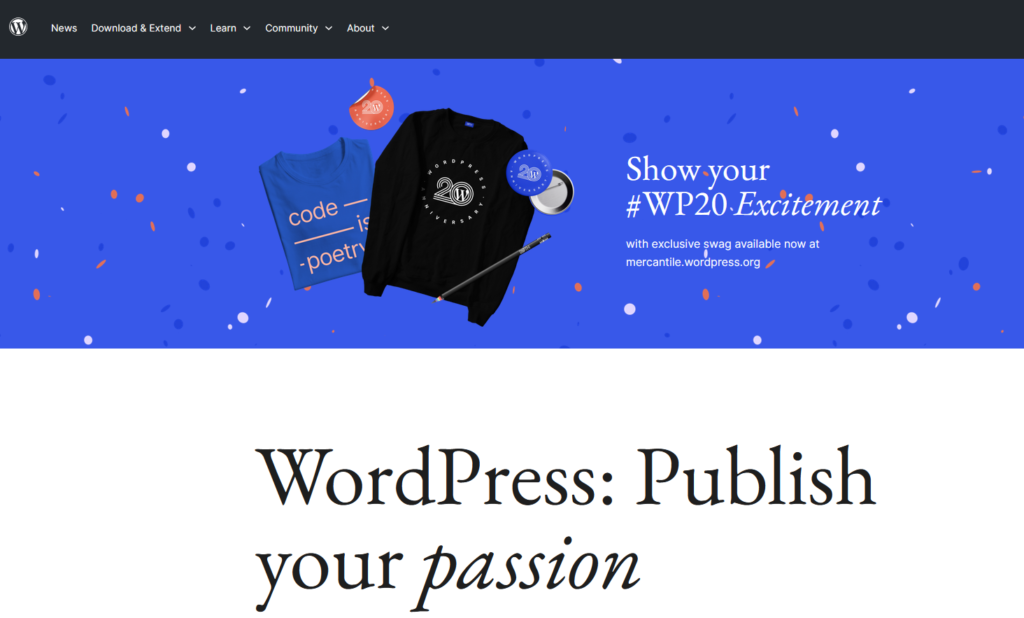
WordPress also provides another significant benefit; you have access to over 59,000 free WordPress plugins.
Plugins function similarly to apps for WordPress, allowing you to include additional functionality and features such as contact forms, shopping carts, Google Analytics, photo galleries, social media tools, CRM, live chat, CSS customization, among others.
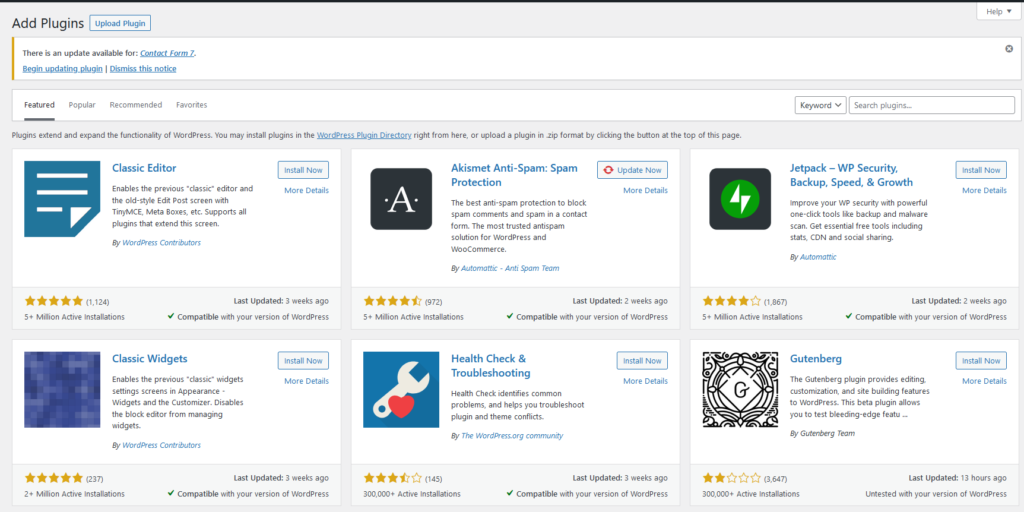
WordPress plugins facilitate seamless integration with popular business tools, automating your daily operations with ease. Additionally, its website builder is available in over 75 languages, enabling you to effortlessly create multilingual websites.
This combined with robust SEO tools makes WordPress the most powerful website builder available. SEO tools such as All in One SEO plugin are recommended by us as they can help your website outrank competitors in Google search rankings.
Based on these factors, our experts have rated WordPress the top website builder and content management system for business owners, bloggers, web developers, and web designers.
Disadvantages:
One of the potential downsides of using WordPress is that you’ll be responsible for managing your website, which entails learning to use a new system. Though most users can get past this minor hurdle, it may feel somewhat tricky initially.
Furthermore, you’ll need to keep up with updates for WordPress and plugins, as well as create backups for your website. Fortunately, many WordPress hosting providers offer automated solutions for these tasks.
Web.com
Web.com has been a top choice for small business website builders since its inception. They provide simple and inexpensive website building tools that enable anyone to create a website without the need for coding skills.
Advantages:
Web.com features an intuitive drag-and-drop website builder, which is particularly helpful for business owners with little technical knowledge.
Additionally, customers can select from a large selection of professionally designed website templates and effortlessly tweak the design to suit their branding requirements through click-and-select features.
The builder includes all expected features, such as photo galleries, video players, testimonial sliders, contact forms, map widgets, and social media icons.
Unlimited website pages can be added, and each page can be individually customized using the builder’s design tools. All templates are fully responsive, and customization options for desktop, tablet and mobile devices are also available.

Their eCommerce capabilities allow for the addition of up to 50 products, secure credit card processing, order tracking and management, discounts, and more.
All Web.com plans include a free domain name, business email address, automatic save and backup features, website security options, SEO tools, website analytics, and other robust web-building options. Additionally, users get unlimited access to the company’s chat and phone support.
Web.com also provides affordable custom web design services completed by experts.
Disadvantages:
Although Web.com provides all the tools necessary for building a small business website, it may lack some of the advanced features a growing business requires. For instance, its blogging functionality is limited, and pales in comparison to WordPress’ robust capabilities.
Although the limit of 50 products is sufficient for the typical small business eCommerce user, those looking to create a more sophisticated online store should consider other website builders such as Shopify or WooCommerce.
Lastly, Web.com being a proprietary website builder, it is not easy to migrate to another platform in the future.
Wix
Wix.com is a widely-used cloud-based website builder software that provides a user-friendly interface and a rich set of features for creating websites. According to recent statistics, Wix powers over 1.9% of all websites.
Advantages:
Wix’s fully-hosted platform eliminates the need for separate hosting services. It also offers hundreds of customizable templates that can be modified using its drag-and-drop site builder.
Wix has developed an artificial design intelligence (Wix ADI) capable of designing aesthetically-pleasing websites for users.
In addition to its vast selection of templates, Wix offers a range of free and paid apps that could be installed on your website, providing new features and functionalities. Some of the apps are developed by third-party developers, while others are created by Wix.
Wix offers a free plan, albeit with limited bandwidth and storage, which nonetheless enables you to experiment with their drag and drop site builder. Since the free plan doesn’t include a domain name, upgrading to a premium plan would be necessary if you intend to keep your website.
Every Wix plan includes a free SSL, although you must enable this feature for your website.
Disadvantages:
The free and Connect Domain plans on Wix display Wix-branded ads, though upgrading to the Combo or Unlimited versions can eliminate them.
Migrating away from Wix may pose a challenge for users.
Additionally, the Connect Domain plan ($9.16/month) only permits the linking of a custom domain name, requiring a separate domain name purchase.
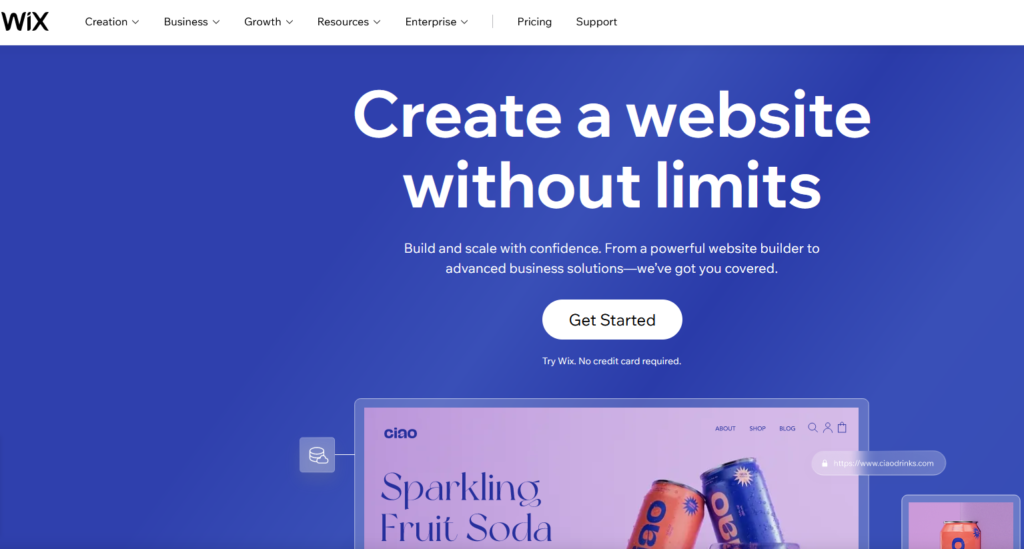
HubSpot Website Builder
HubSpot Website Builder is targeted towards small business owners and marketers, providing a powerful content management platform by combining a drag-and-drop website builder, marketing automation tools, and CRM capabilities. As a result, users can provide their audiences with a personalized digital experience.
Advantages:
HubSpot is recognized as one of the best marketing automation and CRM platforms worldwide. After acknowledging the concerns of small businesses, they developed an all-encompassing website builder, allowing users to construct a website within minutes, without the need for a developer.
HubSpot’s conversion-optimized website templates enable users to create effective web pages swiftly.
Alternatively, users can utilize their intuitive drag-and-drop editor to craft personalized website designs within minutes.
The most significant benefit of using HubSpot’s website builder is the ability to conduct adaptive testing. Customers may choose up to five variations for a specific page, and the platform will track and serve the most effective option.
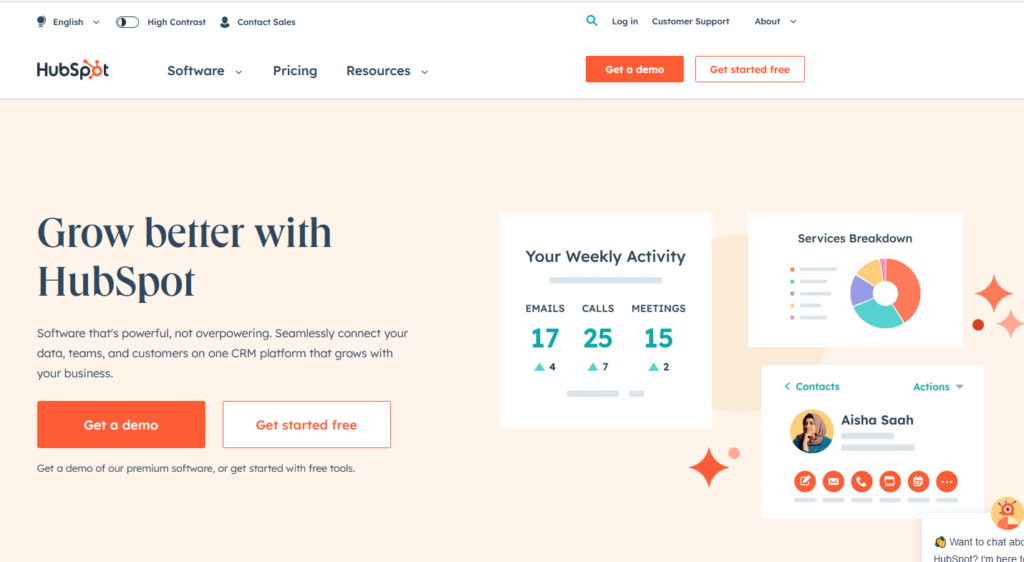
Disadvantages:
While HubSpot’s website builder is excellent for creating personalized digital experiences, it is best suited for simple business websites and landing pages. For advanced business websites and online stores, WordPress is a more suitable option.
Fortunately, HubSpot recognizes this and offers a free WordPress plugin that bridges the gap between the two platforms.
Given the significant number of features offered by the platform, it may be overwhelming for small business owners who are new to digital marketing. However, HubSpot’s account executives will guide and assist customers to achieve online success.
WooCommerce
WooCommerce is an open-source eCommerce software built on top of WordPress and is the most sought-after eCommerce website builder globally to commence an online store. Expert research indicates that 8.8% of all websites operating on the internet prefer using WooCommerce as their eCommerce website builder, which is twice the size of Shopify.
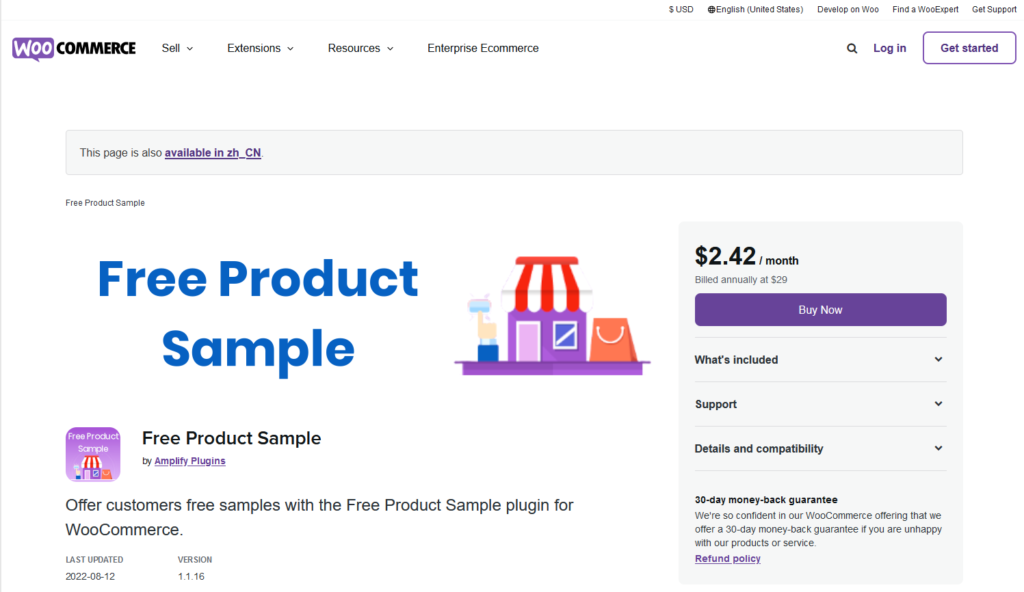
Advantages:
WooCommerce is the finest website builder for eCommerce sites, providing full control over the website. It comprises every feature required for running a successful online store. One can accept online payments via WooCommerce Payments or integrate with over 83 other payment options, including Stripe, PayPal, Square, Authorize.net, AmazonPay, AfterPay, Klarna, Apple Pay, Google Pay, among others. Unlike Shopify, WooCommerce does not levy additional transaction fees if users prefer other payment solutions.
Furthermore, WooCommerce offers dozens of extensions to assist users in shipping, delivery, fulfillment, sales tax management, inventory management, and all other aspects of store management. A user can develop custom sales funnels and product landing pages using SeedProd, create an affiliate program via AffiliateWP, present real-time social proof with TrustPulse, offer free shipping or run BOGO deals with Advanced Coupons, set special wholesale prices using WholeSale suite, add order bumps and upsells by utilizing FunnelKit (previously known as BuildWooFunnels), and carry out almost all other tasks one can imagine.
Additionally, WooCommerce is remarkably SEO-friendly, and users can optimize their eCommerce SEO further by utilizing the AIOSEO plugin. The level of liberty and adaptability provided by WooCommerce cannot be expressed in words. For more information, refer to our comprehensive list of the best WooCommerce plugins and themes.
Taking into account all the aforementioned reasons, our specialists deem WooCommerce as the best website builder for eCommerce.
Disadvantages:
Similar to WordPress, WooCommerce is a self-hosted eCommerce platform, implying that the user will have to familiarize themselves with a new system. Users will be responsible for keeping WooCommerce updated, creating website backups, and performing routine website maintenance tasks. However, WooCommerce hosting providers such as SiteGround, Bluehost, WP Engine, and others can automate most of these tasks.


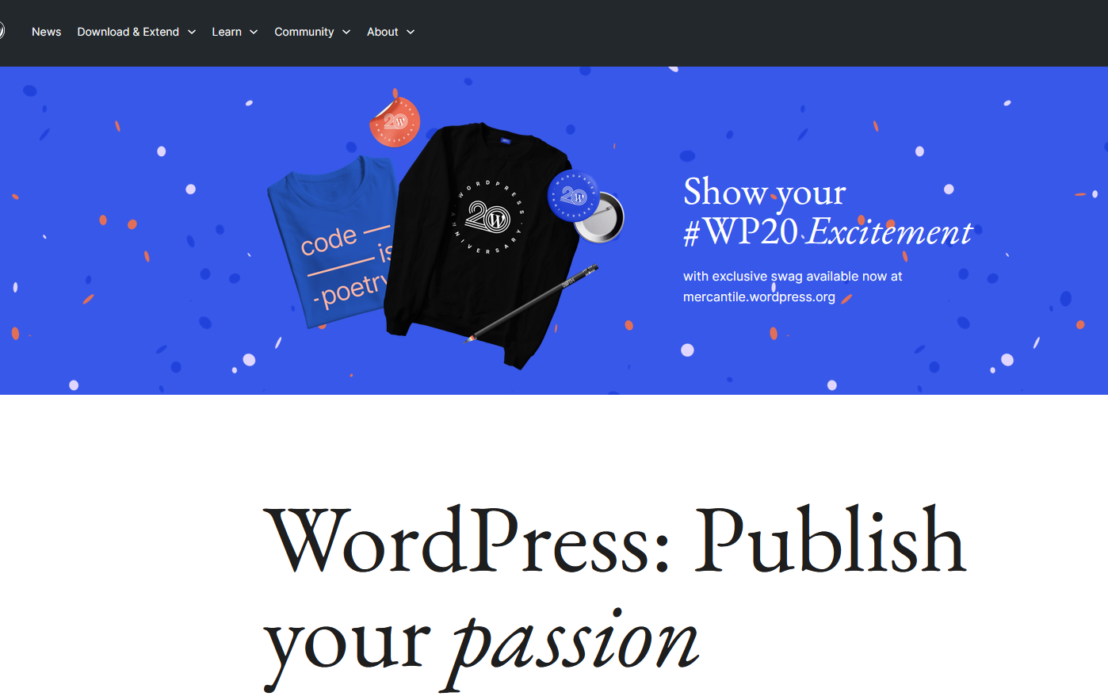



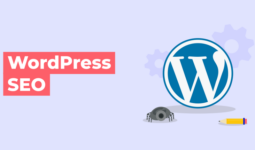
Leave a comment